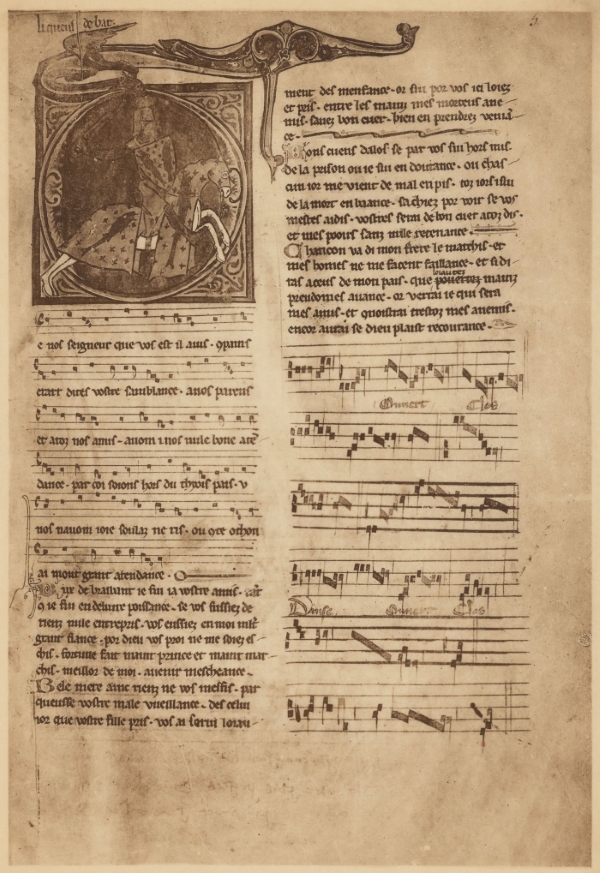Pierre Aubry's archives

The library and archives of Pierre Aubry (1874-1910) were donated to the University of Paris by his widow Suzanne Cavel in 1910. This was the starting point for the musicology collections now held at the Clignancourt university library of Sorbonne University. Among his archives, part of which was found at the Sorbonne in 2023 and a full inventory of which is available in Calames, 6 digitised sets are available in SorbonNum.
Pierre Aubry is a pioneer of musicology. As a student at the École des Chartes, he chose the trouvères as his final year project, at a time when the discipline was still in its infancy. The manuscript of his thesis La philologie musicale des trouvères (1200-1499) (“The musical philology of the trouvères (1200-1499) is a previously unpublished work, available for the first time on SorbonNum.
His digitised archives also include traces of the lectures he gave at the Institut Catholique de Paris (1898-1899), where he taught until 1903. We also find his correspondence as well as a number of records of lectures he gave in various intellectual societies of his time.
Trained in Gregorian chant, Pierre Aubry played a major role in the development of the Schola Cantorum, attached to the Institut catholique de Paris, where he held the chair of sacred musicology. Among other things, he was involved in organising a competition to collect popular songs from France by the Schola Cantorum in 1903, the entire archives of which are included in the digitised collection. An Orientalist (he spoke Armenian), Pierre-Aubry also focused his research on folk songs from abroad.
The largest part of his archive consists of his personal research, all of which has been digitised with the exception of numerous manuscript transcriptions held at the Clignancourt university library. These documents reveal Pierre Aubry’s training as an activist and palaeographer: his calligraphy is meticulous, and he mastered the art of the sheet. He chose a philological approach and, as a historian, explored the almost uncharted territory of musicology. This approach set him apart from the French pioneers of the discipline, such as Jules Combarieu at the Collège de France and Romain Rolland at the Sorbonne. Pierre Aubry spent many hours in libraries, particularly at the Bibliothèque nationale de France but also abroad, in search of medieval manuscripts which he copied, transposed, classified, and edited: a taste that is reflected in his publications, which include a number of collections and anthologies.
Accused of plagiarism in connection with the theory of rhythms in the music of troubadours, and disowned by a jury of experts in favour of a young musicologist, Pierre Aubry sank into depression. His death in troubled circumstances, at the age of just 36, was reported as a fencing accident.
Despite his young age, Pierre Aubry nevertheless laid the foundation of a new scientific discipline. The donation of his documents gave rise to a university collection that today has the CollEx (Collection d’Excellence) label, and has been held at Clignancourt university library since 2013.




